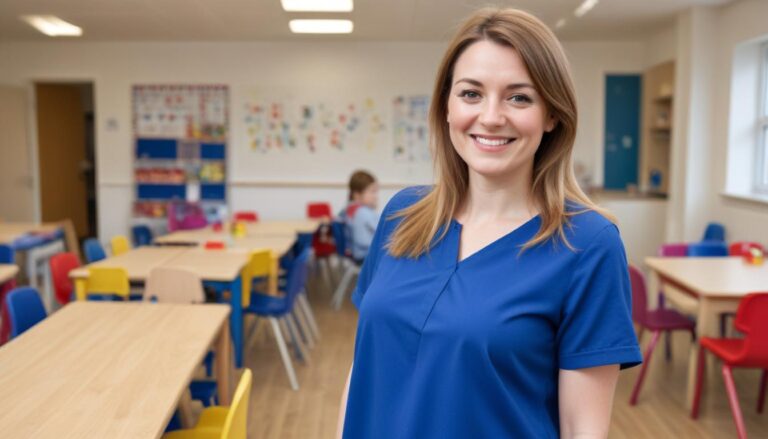
Summary
- Objective observations are vital for accurately assessing children’s needs and development, ensuring that practitioners record facts without personal bias.
- They promote fairness and equality by recognising each child’s unique abilities, avoiding stereotypes that could lead to misinterpretations.
- Clear and factual observations enhance communication with parents and guardians, allowing for better support and understanding of a child’s progress.
- Objective recording is essential for effective planning and legal compliance, as it informs appropriate educational strategies and respects children’s rights.
This guide will help you answer 3.2 Evaluate the reasons for objectivity when recording observations.
Observations guide early years practitioners in understanding children’s needs and development. Objective observations form the backbone of accurate assessments and effective planning. Objectivity means recording facts without letting personal beliefs or emotions colour your judgement. It ensures you’re presenting an honest account of what you see rather than what you assume or hope.
When you stay objective, you deliver accurate information to parents, guardians, or other professionals. This can influence decisions about a child’s learning and support needs. Accurate observations help shape a child’s educational experiences and provide personalised learning opportunities.
Promoting Fairness and Equality
Objective observations support fairness and equality. Every child is unique, with different backgrounds and abilities. Avoid letting stereotypes or biases influence how you see a child’s behaviour. For example, assuming boys are naturally more active than girls can lead to biased records and missed opportunities to recognise individual needs.
A fair approach means observing each child as an individual. This helps practitioners recognise achievements and areas needing development without comparison to others. Equal treatment in observations upholds inclusive practice, ensuring no child is disadvantaged.
Enhancing Communication
Objective observations are important in shared communications between practitioners and parents or guardians. It establishes trust and understanding. Sharing objective records allows parents to see an unbiased view of their child’s progress and behaviour in the early years setting.
Clear, factual observations help parents support learning at home. They feel more confident in understanding what actions they can take. It also enables discussions based on facts rather than feelings, promoting better support and interventions.
Informing Planning and Practice
Accurate observations impact planning for individual development. Early years practitioners use these records to create learning opportunities. Planning activities that suit the child’s interests and stage of development encourages engagement and progress.
Without objective observations, planning can be misguided. If observations are coloured by assumptions, the learning experiences planned might not align with a child’s true needs. Supporting individual progress involves recognising genuine interests and developmental stages through unbiased observation.
Legal and Ethical Responsibilities
Working with children involves legal and ethical duties. Objectivity in observations ensures compliance with legal frameworks like the Equality Act 2010. Practitioners have a duty to provide equal learning chances to all children, regardless of background or ability.
Ethically, practitioners must strive to represent all children truthfully. An objective approach respects the child’s right to be seen as they are. It prevents misrepresentation and promotes a culture of honesty and respect within the setting.
Supports Accurate Assessments
Observations often feed into wider assessments and reports. Objective observations are foundational for accurate assessments, helping identify children’s strengths and areas needing support. Assessments could influence referrals to specialists or indicate additional support requirements.
Inaccuracies in observations can lead to misjudgements in support and planning. Bias in observations may result in inappropriate interventions, affecting a child’s potential progress. Quality assessments rely on factual accounts of behaviours and achievements.
Practical Steps for Objectivity
Ensuring objectivity involves adopting certain practices:
- Describe, Don’t Interpret: Stick to what you see. “Sam placed five blocks evenly on top of each other,” instead of “Sam is good at building.”
- Use Open Language: Avoid subjective terms like ‘naughty’ or ‘clever’. Describe actions or outcomes factually.
- Be Consistent: Use the same criteria and language for observations across all children. This reduces the chances of bias.
- Focus on Details: Include factual details like time, place, and who was involved. This context helps clarify the observation.
Regular training and reflection help improve observation skills. Engaging with colleagues to cross-reference observations can also highlight any biases you might not recognise yourself.
Final Thoughts
Objective observations are critical in the early years setting. They ensure fairness, enhance communication, and support accurate planning and assessment. Practitioners have a duty to present children’s behaviour and achievements honestly, reflecting their true progress and needs. Through objective recording, they promote equality, inform practice, and meet legal and ethical obligations. Practising objectivity paves the way for an inclusive and supportive learning environment that benefits all children.
Subscribe to Newsletter
Get the latest news and updates from Care Learning and be first to know about our free courses when they launch.



